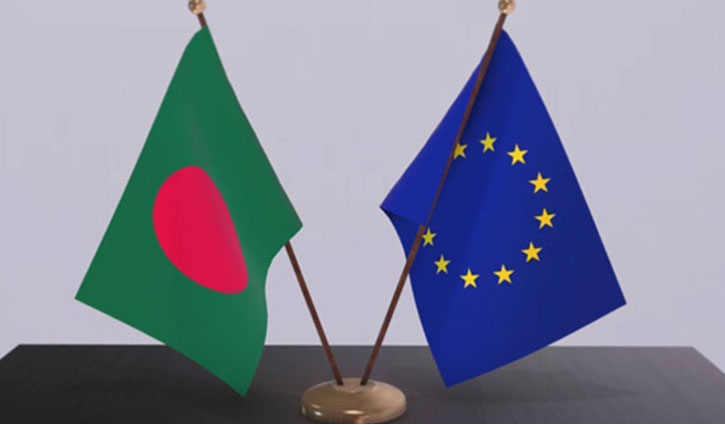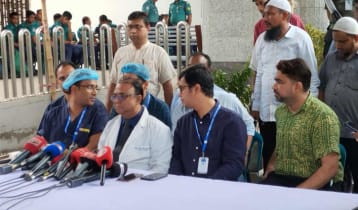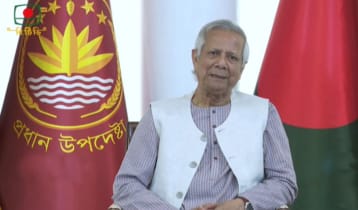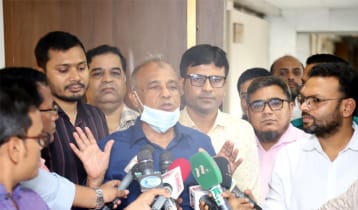Europe keen on hiring skilled workers from Bangladesh
Diplomatic Correspondent || risingbd.com

European countries have expressed interest in hiring more skilled manpower from Bangladesh under the Talent Partnership Program.
The daylong 11th meeting of the EU-Bangladesh Joint Commission was held in Dhaka on Monday (November 4) under the framework of the EU-Bangladesh Cooperation Agreement.
The meeting was co-chaired by Shahriar Kader Siddiky, secretary of Economic Relations Division (ERD) under the Ministry of Finance on behalf of Bangladesh government and Paola Pampaloni, deputy managing director of the European Union’s diplomatic service.
European countries are interested in hiring manpower from Bangladesh in about 10 sectors. The government is preparing a roadmap to send skilled manpower legally to those EU countries. If everything goes well, the roadmap will be released with the consent of both sides.
Currently, Germany, Italy, Greece and Romania are interested in hiring manpower from Bangladesh. The priority sectors identified in the joint commission meeting are ICT, caregiving, construction, tourism and hospitality, agriculture and agro-processing, shipbuilding and ready-made garments.
Meanwhile, Bangladesh has requested the European Union to consider revising its new (draft) GSP scheme, particularly the safeguard clauses, so that all exportable products including ready-made garments can avail of the trade privileges beyond 2029.
At the joint commission meeting, Economic Relations Division officials also urged the EU to consider adopting flexible rules of origin (RoO) criteria.
Bangladesh, set to graduate from the least developed country (LDC) status in November 2026, will continue to access the existing duty-free privileges under the current GSP (generalised system of preferences) and EBA (Everything But Arms) schemes until 2029 as the EU grants an additional three-year transition after graduation.
For continued trade benefits beyond that period, Bangladesh can apply for the new GSP+ scheme which comes with tougher eligibility criteria requiring Bangladesh to add more domestic value to its products and meet human rights, labour and environmental standards.
With the new GSP regime and its safeguard provisions deferred until the end of 2027, the EU could consider a waiver from these safeguard measures on Bangladesh’s textiles and clothing, Economic Relations Division (ERD) Secretary Shahriar Kader Siddiky said at the meeting.
Safeguard measures built into the EU GSP scheme, if unchanged, will not let Bangladesh continue with duty-free market access to clothing products, he pointed out in his presentation.
Bangladesh should not be penalised for its lack of export diversification and its impressive developmental progress reflected in LDC graduation, he insisted.
“It is also unfair that some non-LDCs can access GSP+ facilities for apparel products, while a graduated LDC like Bangladesh will be excluded,” the ERD secretary said, making Bangladesh’s point stronger for accessing trade preferences in future in the country’s largest export market that has been enjoying duty-free market access for “everything but arms” in Europe since 2001.
The EU and Bangladesh reinforced their commitment to “strengthen cooperation” in the field of human rights, good governance and on-going reform process of the interim government.
They recognised that the political transition the country is currently undergoing constitutes an “unprecedented opportunity” to make progress on human rights and good governance in Bangladesh.
They paid tribute to the courage and determination of the students and members of the general public that stood up for their rights – and remembered those that lost their lives – during the popular uprising in July-August.
The EU welcomed the interim government’s “strong commitment” to advance reforms and take the necessary steps towards a “democratic, pluralistic and inclusive” Bangladesh that is grounded in the rule of law and human rights.
Dhaka/Hasan/AI


















